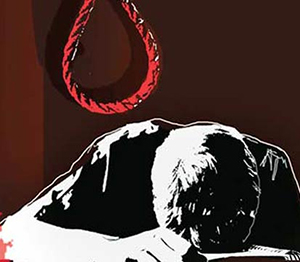Bengaluru, Apr 11: Former prime minister H D Deve Gowda claimed the lockdown decision was taken in 'haste' without forethought because of which farmers and the working class were 'suffering' and suggested measures to mitigate the impact. The state government should have consulted experienced citizens, officials, progressive farmers, farmer organisations and wholesale traders about the pros and cons before lockdown, he said in a letter to Chief Minister B S Yediyurappa, while highlighting that 61 per cent of the state's population depended on agriculture.
Because of the "hasty decision taken without any preparations", farmers of the country and the state are facing financial distress," he said in the April 9 letter, a copy of which was released to media here on Friday. The JD(S) patriarch suggested taking up some measures, including ensuring no restrictions on agriculture activities, procurement of horticulture produce at a fair price, relaxing export curbs on it, to provide relief to farmers, agriculture labourers, and daily wage workers.
On Sunday, Gowda had said he has assured Prime Minister Narendra Modi of his support in the nation's battle against COVID-19 pandemic when the latter called him to discuss the situation. In his letter to the chief minister, Gowda said: "...the lockdown implemented to control the spread of coronavirus has led our farmers into despair and put their lives into a burning fire.
This lockdown looks like a decision taken at haste without proper thinking and forethought for our farmers, agriculture labourers, and daily wage workers." He said the lockdown decision was taken after remaining 'quite' for about two months since the first corona infection was reported in the country on January 30. Among the suggestions made by the former prime minister include, procurement of horticulture produce at a fair price like in the case of milk from villages by the government through related organisations like Karnataka Horticulture Federation, HOPCOMS among others.
As horticulture produce was perishable, there should be no restriction on its procurement, transportation and marketing; all processing related activities of horticulture produce should be given relaxation from the lockdown, he said. Gowda also called for relaxation on exports for horticulture produce and its processed items. There should be no restriction on agriculture activities; a national grid has to be set up for marketing of horticulture produce, he said.
If such measures were not taken up immediately, the government will have to pay compensation to farmers for losses. Lack of remedial measures would lead to a shortage of supply, leading to rebellion from the people and may result in farmers' suicides and bringing about a situation that might be more grave than coroanvirus, he said.





Comments
Heartbreaking, no words.... RIP.
Add new comment